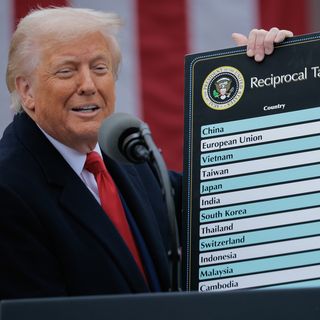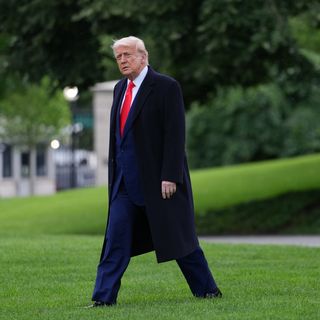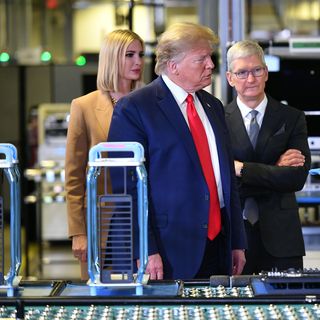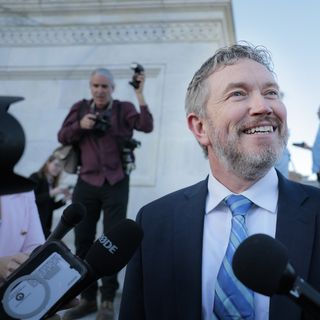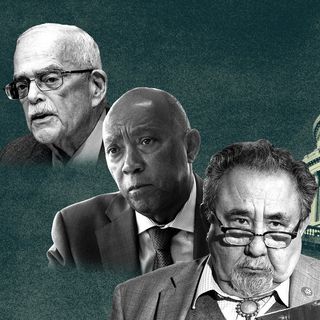Ivy League squeeze: How the Trump administration has hammered Harvard
Harvard is at the center of the Trump administration's higher education pressure campaign — and has emerged as the example of what happens when a university pushes back against the government's demands.
The big picture: By freezing billions in federal funds, derailing international students' futures and levying allegations of antisemitism and discrimination, the administration has squeezed the institution on various fronts as the school becomes the litmus test of how far President Trump will go.
The latest: Harvard on Friday sued the Trump administration (again) over what the school alleges is "clear retaliation" against exercising its First Amendment rights after the administration nixed the Ivy League institution's ability to host international students.
- A federal judge on Friday swiftly blocked the administration's decision.
- Harvard University President Alan Garber said in a statement that the move was yet another step "against Harvard for our refusal to surrender our academic independence and to submit to the federal government's illegal assertion of control over our curriculum, our faculty, and our student body."
Yes, but: As the administration batters the university with investigations and grant terminations, its shields and refusal to capitulate persist.
- But there has still been damage, with researchers trimming expenses as federal grants are reduced or cut entirely.
- And as Axios' Dan Primack notes, Harvard's loss may be the U.S. economy's as well: Targeting international students, a population that has played a critical role in founding and co-founding startups, could mean setting back the country's innovation engine.
Read below for the ways the Trump administration has targeted Harvard:
Administration lists its demands
In an April 11 letter signed by administration officials, Harvard was presented a series of demands to "maintain" its "financial relationship with the federal government."
- The list outlined Trump's vision for the university's institutional priorities. The administration has used federal funding as leverage to ensure that those aims are implemented.
Funds frozen
In a strongly worded letter to Garber, Education Secretary Linda McMahon on May 5 announced the end of new grant funding to the university.
- On top of that, some $2.7 billion in federal funding to Harvard has been halted, per CNN's estimate.
- That includes the freezing of $2.2 billion in grants and $60 million in contracts announced in April and some $450 million in terminations announced in May.
- The Department of Health and Human Services also said in mid-May it was terminating several multi-year grant awards totaling nearly $60 million to Harvard, citing antisemitism.
As Axios' Steph Solis puts it, the blows have the university bracing for death by a thousand grant cuts.
Investigations launched
The administration's antisemitism task force, the Justice Department, the Department of Homeland Security and the Education Department, among various other agencies, have probed Harvard in recent months.
Catch up quick: In March, the Department of Education's Office for Civil Rights alerted 60 higher education institutions, including Harvard, that they could face enforcement action if they didn't protect Jewish students.
- The Education Department and HHS are also investigating allegations that the Harvard Law Review made article selection decisions based on race.
- DHS Secretary Kristi Noem, threatening last month to withdraw Harvard's certification to host international students, requested records about student visa holders, alleging the university had created a "hostile learning environment" for Jewish students.
- The Justice Department in May announced it would use the False Claims Act to investigate recipients of federal funds that violate civil rights laws. Per the New York Times, the DOJ is using that avenue to probe Harvard's admissions process.
Threats to Harvard's tax-exempt status
The administration also reportedly asked the Internal Revenue Service to rescind Harvard's tax-exempt status, which Trump said is "totally contingent on acting in the public interest."
- The legally dubious threat could cost the university hundreds of millions a year.
- Garber said in an interview with the Wall Street Journal in May that if the government went through with the plan, it would be "highly illegal." He added it would be "destructive" to Harvard and send a "very dire" message to the educational community.
Go deeper: Trump's funding ax throws colleges into an existential crisis




